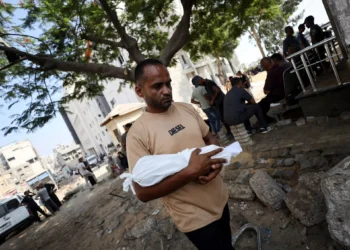Typhoon Wipha Disrupts Air Travel in Hong Kong and Southern China
Typhoon Wipha has led to significant flight disruptions in Hong Kong and various parts of southern China. The strong winds and heavy rainfall associated with the typhoon have prompted airlines to cancel, postpone, or reschedule numerous flights, impacting travel plans for thousands of passengers.
Key Points:
- Numerous flights have been canceled or delayed in Hong Kong and southern China due to Typhoon Wipha.
- Airlines are advising passengers to check their flight status and make necessary adjustments to their travel itineraries.
- The typhoon has brought strong winds and heavy rainfall to the region.
Impact on Air Travel
The aviation sector has been significantly affected by Typhoon Wipha. Airlines operating in and out of Hong Kong International Airport (HKIA) and other airports in southern China have had to make substantial adjustments to their schedules. Many passengers found themselves stranded as airlines worked to manage the disruptions and ensure passenger safety. Airlines are working diligently to re-accommodate affected travelers once the weather conditions improve.
Passengers are strongly advised to check the latest flight status updates with their respective airlines before heading to the airport. Airlines are also providing options for rebooking or refunds for those whose flights have been canceled.
Typhoons can raise concerns about the safety of air travel and the measures taken to protect passengers. What are the standard protocols airlines follow during severe weather conditions to ensure passenger safety? Airlines adhere to strict safety protocols during severe weather, including closely monitoring weather conditions, delaying or canceling flights, securing aircraft, and providing passengers with timely updates.
Safety Measures and Precautions
Authorities and airlines have implemented several safety measures to mitigate the risks associated with the typhoon. These include enhanced monitoring of weather conditions, reinforcement of airport infrastructure, and deployment of additional staff to assist passengers. Passengers are urged to follow the instructions of airport personnel and remain patient as airlines work to restore normal operations.
Typhoon Wipha serves as a reminder of the potential impact of severe weather on travel and transportation. As climate patterns continue to evolve, how can infrastructure and emergency response systems be improved to better withstand extreme weather events? Improving infrastructure resilience, enhancing early warning systems, and strengthening emergency response coordination are essential for mitigating the impact of extreme weather events.
Summary
Typhoon Wipha has caused considerable disruption to air travel in Hong Kong and southern China, leading to flight cancellations and delays. Passengers are advised to stay informed and make necessary adjustments to their travel plans. Airlines and authorities are working to ensure passenger safety and restore normal operations as soon as possible.


























